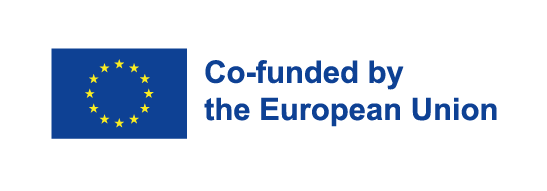Aims and objectives of ‘DEBUE’
‘Debating Europe: Internal and External Dynamics of European Integration’ (DEBUE) is a multidisciplinary project funded by the European Union’s Jean Monnet scheme which aims to foster learning and informed debate on the internal and external challenges shaping European integration and driving the EU’s place in the world. DEBUE meets the need for knowledge and critical analysis of EU issues and integration at a time when fake news and misrepresentation is widespread, and democracy and the rule of law are at risk.
The module’s activities will stimulate learning and structured reflection on key topics, including EU-values, democracy, gender, inclusion, sustainability and the rule of law. It will provide participants, with sophisticated knowledge and nuanced insights, which will help them challenge myths and fake news and to become active European citizens and informed stakeholders in shaping Europe’s future.
DEBUE is coordinated by Dr Kerry Longhurst, Head of the Institute of Political Science and International Relations (INPISM) at Collegium Civitas. If you are interested in any of DEBUE’s activities and would like to cooperate or participate, please get in touch. kerry.longhurst@civitas.edu.pl
DEBUE: Key activities
- Multidisciplinary taught courses for BA and MA students on ‘Debating Europe’ at Collegium Civitas during winter and spring semesters.
- An international summer school led by academics, experts and practitioners and including EU future scenario-building exercises held at Collegium Civitas.
- Webinars and podcasts on contemporary social and political issues, including inclusive societies, gender and equality.
- Virtual European classrooms in the form of online debates on democracy, rule of law and EU as a global actor, with peers at universities in Eastern Partnership and Central Asian states.
- Research on the Eastern Partnership and enlargement questions.
DEBUE: Effects and impact
DEBUE will have several transformative effects and impacts:
- More students at BA and MA levels and from various backgrounds will learn about the EU via multidisciplinary teaching activities, which will also support students’ capacities to debate and critically analyse EU issues.
- Students will interact with peers from non-EU states, which will help them appraise their European citizenships, at local, regional, European and non-EU levels.
- Public debate will be enriched by DEBUE, especially via its webinars and podcasts on values and inclusion.
- Cooperation amongst universities in Poland, Georgia, Armenia and Kazakhstan will be enhanced via common teaching activities, including the Virtual European Classroom, and research.
DEBUE People
DEBUE activities are led and supported by numerous academics, experts and practitioners. Below are just a few.
 Dr Kerry Longhurst is Head of the Institute for Political Science and International Relations at Collegium Civitas. She has published in the areas of European security, the Eastern Partnership and gender. She is also a senior expert for various international organisations and NGOs in the fields of higher education and civil society.
Dr Kerry Longhurst is Head of the Institute for Political Science and International Relations at Collegium Civitas. She has published in the areas of European security, the Eastern Partnership and gender. She is also a senior expert for various international organisations and NGOs in the fields of higher education and civil society.
Dr Magdalena El-Ghamari is an academic at Collegium Civitas where she conducts research and teaching on security issues in relation to the MENA region.
Prof. Basac Alpan is an academic at the Middle East Technical University in Ankara, Turkey. Her teaching and research focuses on EU-Turkey relations and theories of European integration.
Dr Vanessa Tinker is an academic at Collegium Civitas. Her research is focused on peace building and conflict resolution.
Dr Nino Lapiashvilli is Head of European Studies at Tbilisi State University. She is an expert in the field of European integration, Eastern Partnership and Georgia’s relations with the EU.
Dr Agnieszka Nitza-Makowska Is an academic at Collegium Civitas where she conducts research on soft power in international relations and China’s role in the world.
Dr Ekaterina Pierson Lyzhina teaches at Universite Libre de Bruxelles, Belgium. Her research interests are to do with Sustainable Development Goals (SDGs) and resilience.
Dr Jens Boysen Is an academic at Collegium Civitas where he teaches on European and International Security topics.
Dr Katarzyna Iwinska is a Vice Rector at Collegium Civitas and is responsible for research and innovation. Her research interests span the sociology of ecological issues and the environment.
Mr Stefan Morar is a PhD candidate at the University of Montreal, Canada. His research looks at unrecognized states and in particular the phenomenon of the practice of nation-building.
Prof. Armand Gosu is a Professor at the University of Bucharest. His areas of expertise are Russian politics and society, post-Soviet transitions in Eastern Europe.
Ms Armenhui Ananyan is an NGO worker from Armenia. As well as being a civil society activist she is also a researcher in gender and security.
Dr Alisher Tleubayev is an academic from the Suleyman Demirel University in Kazakhstan where he works on issues to do with inequality.
- FINAL CC Security, Soft Power, and Feminist Foreign Policy of the European Union-3
- FINAL TSU Paper- EU Enlargement Cluster-2
- FINAL EHU paper How_does_the_EU_promote_democracy_and_rule_of_law_beyond_its_borders-2
The project is co-funded by the European Union


